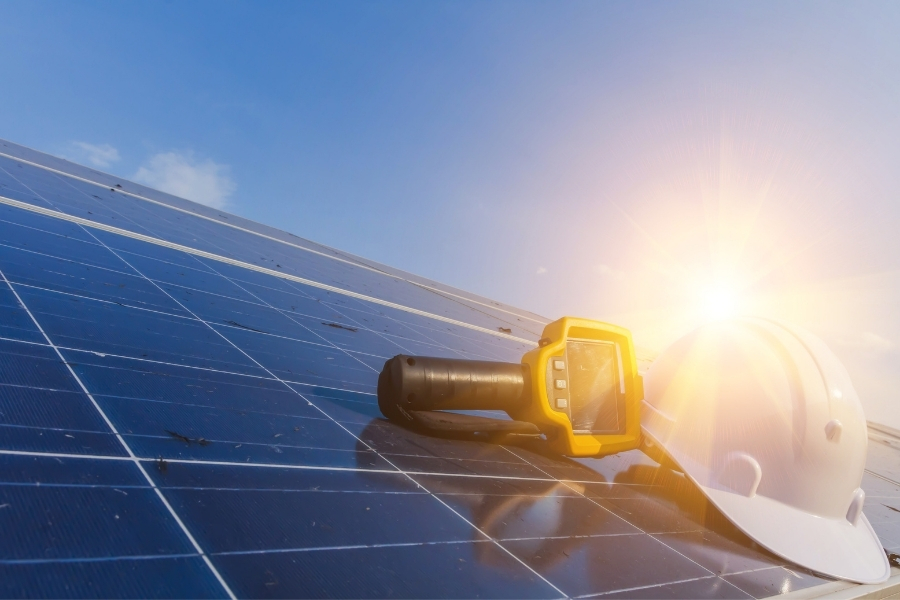7 Solar Installation Checks You Can Start Today
7 Solar Installation Checks You Can Start Today The day your solar installation is switched on for the first time can be very exciting – but it’s...
Once you get a solar system installed, you’ll probably still have questions. Some of those might be related to what kind of metering changes you’ll see, and whether there’s anything else you need to do in order to make sure your system is working correctly and everything’s set up right. You want to get the maximum value from your investment in solar power. Here are some of the most important questions to ask?
It’s not possible to just set up a solar system and start using it right away with the maximum benefits. You’ll need to work with the power company in order to be sure that you’re giving and receiving power correctly. That will reduce the chances that your new system won’t save you money, and also make sure you’re not trying to feed power through a meter that’s not designed for it. That could be harmful, but fortunately it’s also easily avoided.
You’ll need a new meter — called a bi-directional meter — after your solar system has been installed. That’s because the standard meters are only designed to send power to your home. The new meter will still be able to do that, but it will also accept power from your home. If your home is one that’s set up with three-phase power, you’ll need a special type of electric meter to handle that properly.
Metering arrangements are the agreements you have with the power company. For example, your arrangement may be that you’ll send power to your house first and then excess power will go back to the grid. That reduces how much energy you’re consuming, so your bill will be lower.
Gross meters were designed to send all the solar power your system made to the grid, instead of sending it to your house and then comparing how much you were producing with how much was being used. There was a feed-in tariff that was pre-determined, but that’s not in wide use anymore. In most cases, net metering will be a better choice for your needs, and will give you the best financial value.
Net meters are continuously looking at how much energy you’re using versus how much is being produced. Then the data is calculated over the entire billing cycle. That helps you save money, and gives you the opportunity to send some power back to the grid, too. Doing that can give you a feed-in tariff, which can add to the financial benefit of having a solar system.
The right meter is the one that works best for your situation. Due to the reduction in feed-in tariffs, though, the vast majority of people use a net metering system. Your installer can help advise you on your options.
When you understand metering and are using what works best for you, you can continue to harness the sun’s power and use it to your advantage. That will help you save on your energy bills, and even help you give back when it comes to sending power to the grid.

7 Solar Installation Checks You Can Start Today The day your solar installation is switched on for the first time can be very exciting – but it’s...
Many people have questions and concerns about buying solar panel systems. Previously, Solar Trust Centre has covered the basics about buying solar...
Choosing a solar system for your home can be a great way to reduce your energy bills and harness the power of the sun, instead. But you want to make...